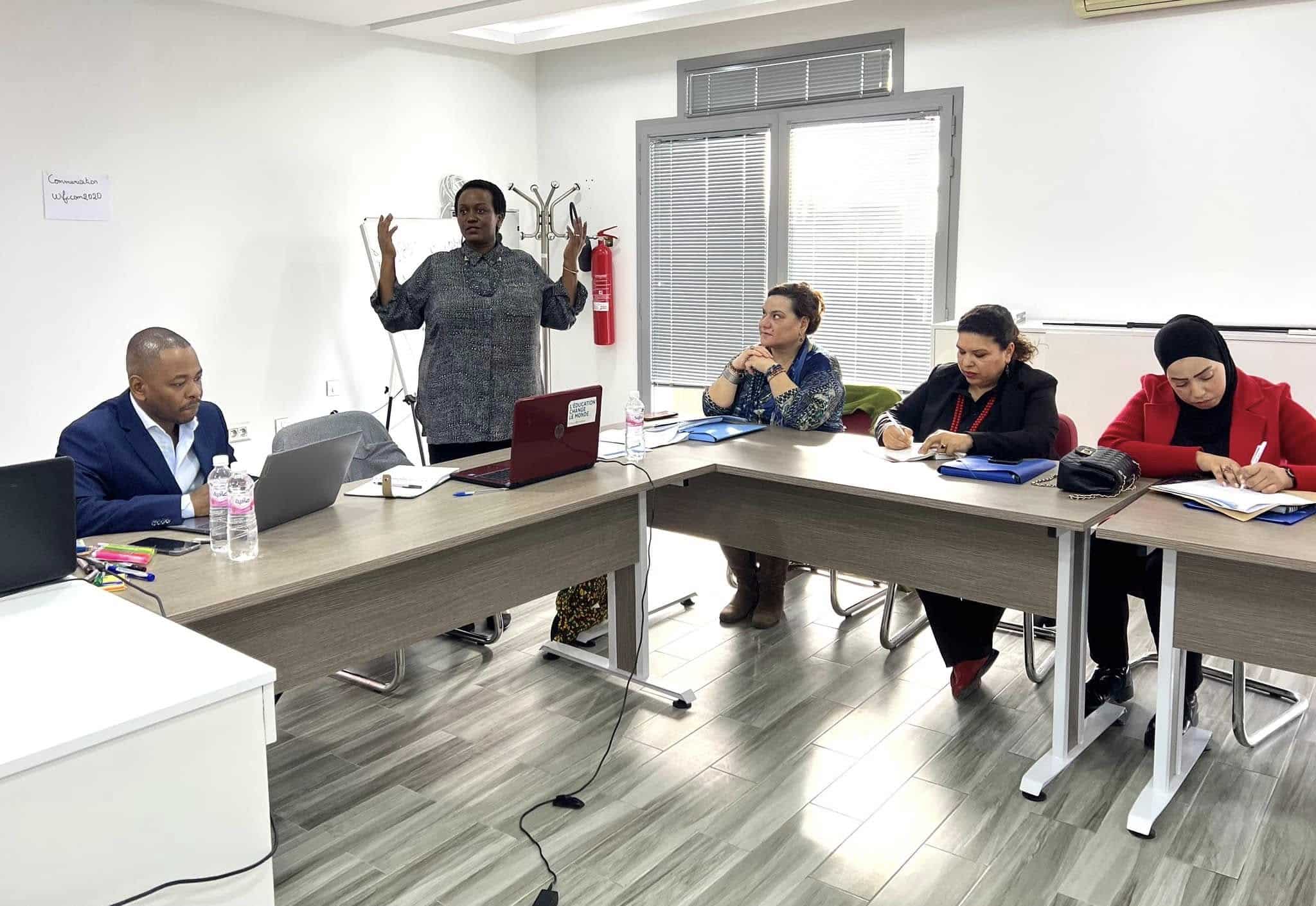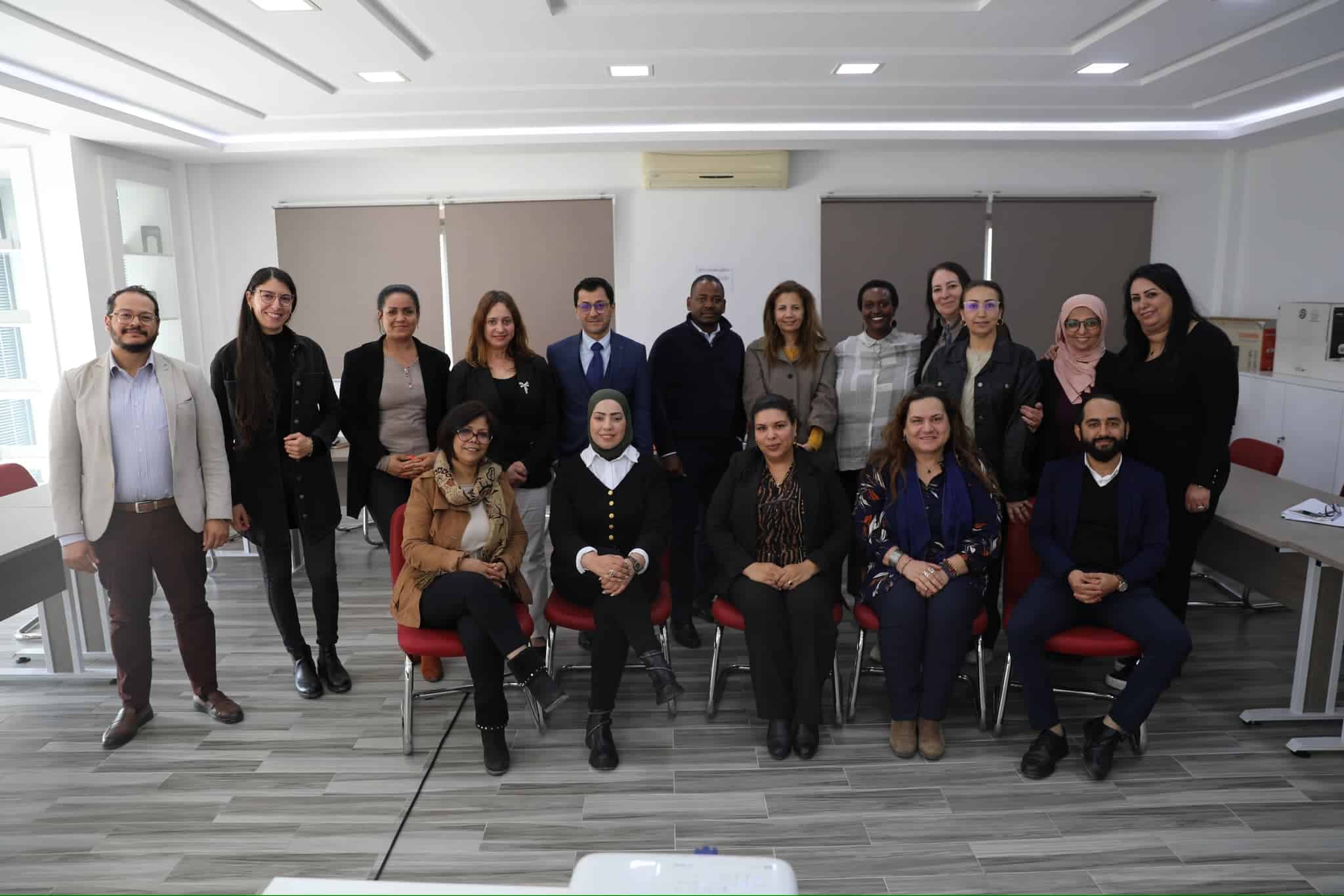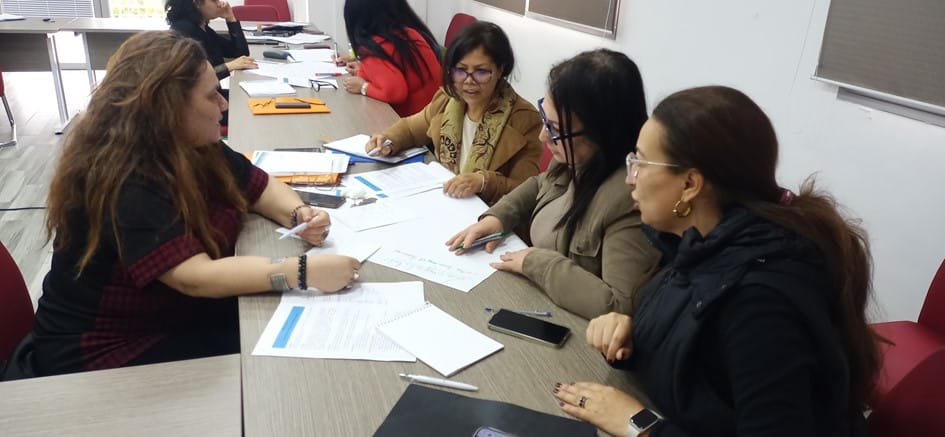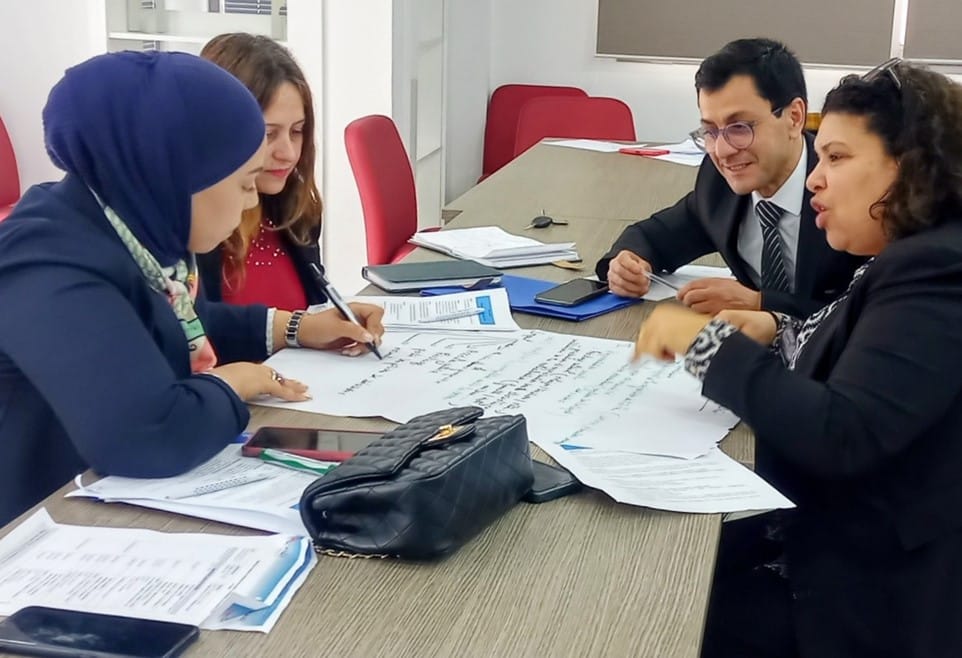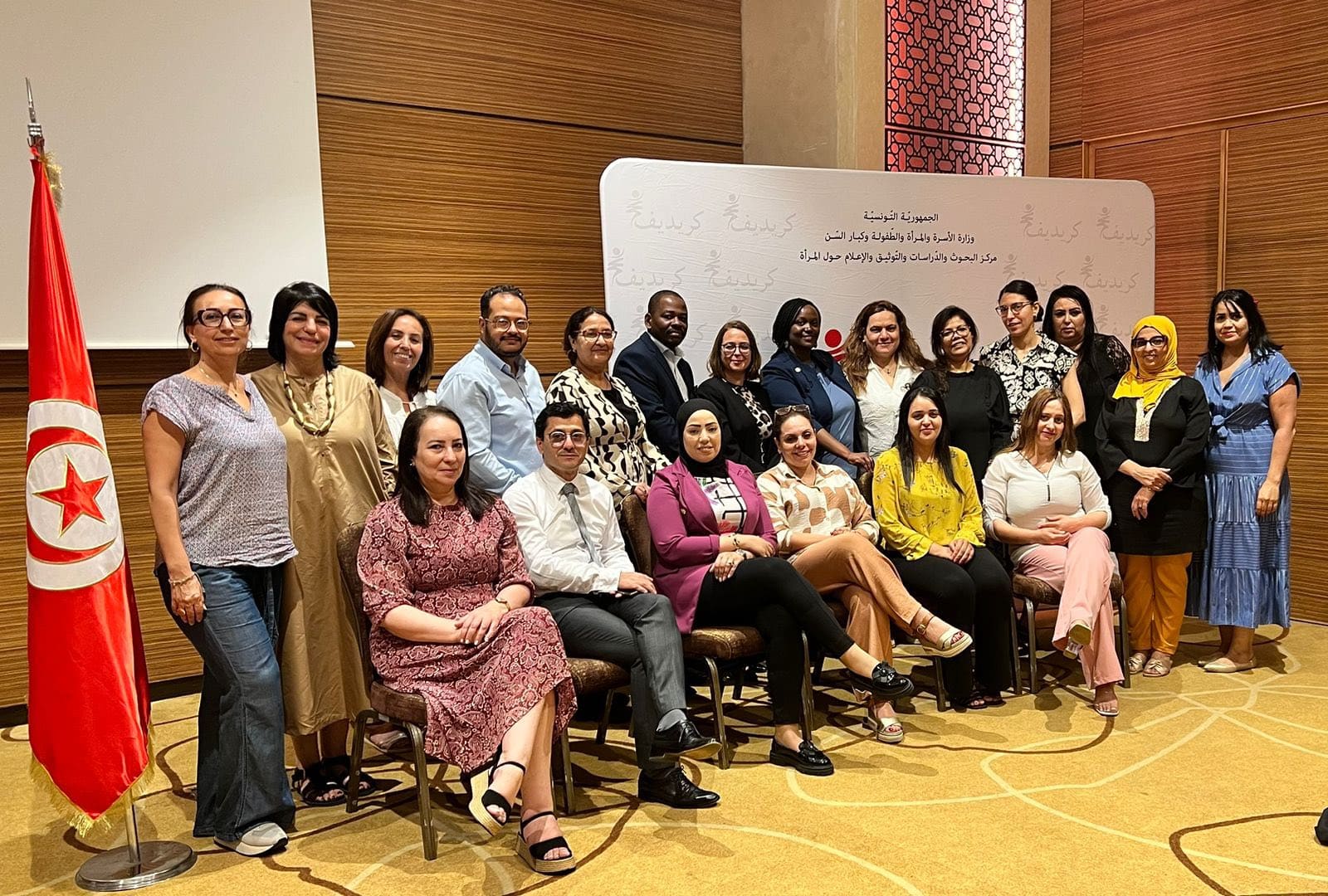By Yvio Georges, Climate Change Expert, and Ella-Nadège Nzobonimpa, Gender Expert
Through the Technical Assistance Partnership – Expert Deployment Mechanism (TAP-MDE), a program implemented by Alinea International and funded by Global Affairs Canada, the initiative IAT-74 Tunisia: Women, Environment, and Climate Change provided training to staff of the Centre for Research, Studies, Documentation and Information on Women (CREDIF) and to officials from the Ministries of Family, Women, Children and the Elderly (MFFEPA), Agriculture, Water Resources and Fisheries (MARHP), Public Health, and Finance.
CREDIF, a Tunisian institution under the authority of the Ministry of Family, Women, Children and the Elderly, identified a need to build its team’s capacity to support the implementation of the National Gender and Climate Change Action Plan (PANGCC). It also sought to raise awareness—among both key stakeholders in climate action and the broader Tunisian public—of the intersections between gender and climate, in a national context increasingly marked by water scarcity.
Across the globe, the effects of climate change are accelerating: relentless droughts, destructive floods, record-breaking heat waves, and biodiversity loss. While statistics and images of climate disasters are striking, a less visible reality persists: not everyone is affected in the same way. Inequalities, particularly between women and men, heighten vulnerability in times of climate crisis.This was the central theme of the certified Training-of-Trainers mission we conducted in Tunisia on “Women and Climate Change.”
Climate Change and Gender Inequality
Women and girls are often on the front lines of climate disruption due to the central roles they play in subsistence farming, water management, and the use of natural resources.Their increased vulnerability is not accidental—it is rooted in existing inequalities. Limited access to resources such as land, credit, education, and information, coupled with low participation in decision-making processes and restrictive social norms, all contribute to the heightened risks women face.In Tunisia, women make up 70% of the agricultural workforce and 80% of the forestry workforce. Yet, they represent only 15% of permanent workers, own just 8% of farms, and control barely 5% of total agricultural land. This structural imbalance leaves them particularly exposed. Climate change compounds these challenges by making agricultural incomes more precarious, limiting women’s access to credit, and reducing their ability to adapt. Faced with these obstacles, many women are forced into informal income-generating activities that lack social protection and often put their health and safety at risk—for instance, elderly laggata (gleaners) in Kerkennah.
In addition, women’s limited access to information about resilient agricultural practices, adaptation technologies, and extreme weather events further increases their vulnerability.Climate change also intensifies the burden of unpaid domestic work, which falls largely on women and girls. In Tunisia’s context of severe water stress (World Water Forum, 2012), many women must walk long distances to collect water—often at the expense of their health, safety, and time. This reduces their opportunities for education, income-generating activities, or participation in water governance, and can even force girls to drop out of school.Yet climate adaptation measures do not always adequately account for these gender disparities. Responses to climate change often address environmental impacts without fully recognizing the unequal burdens faced by women and marginalized groups.
Women as Agents of Change
Women are not only victims of climate change—they are also powerful agents of adaptation and innovation. Their traditional knowledge of resource conservation, creativity in overcoming daily challenges, and ability to mobilize communities make them invaluable actors in building resilience.Local and international initiatives are increasingly recognizing women’s role in community water management, promotion of sustainable farming practices, small-scale renewable energy development, and climate awareness within households and communities.
Supporting Women’s Leadership in Climate Action
Gender-responsive climate action is essential. It must reduce unequal vulnerabilities, ensure a just and equitable transition, and serve as a catalyst for structural change. This means strengthening policies that support women’s empowerment, ensuring equal access to resources and opportunities, guaranteeing women’s participation at every level of climate decision-making, and investing in education and training to enhance women’s capacity for adaptation and innovation.These were the focus areas of our two training sessions in Tunisia. Participants gained knowledge about gender-differentiated vulnerability, the roles women play in climate response, and effective adaptation practices, particularly in sustainable water management. They left with concrete tools and strategies to advance gender-responsive climate action in Tunisia and contribute to the implementation of the PANGCC.To sustain this progress, a training kit was developed, including a trainer’s guide, practical tools, and PowerPoint presentations—resources that will support future trainers.
Already, the initiative is showing results. In the coming months, gender and climate training will be delivered to nearly 700 staff members of the Ministry of Agriculture, Water Resources and Fisheries, thanks to the commitment of the participants trained and the high quality of the materials produced.
Through TAP-MDE and in collaboration with local and international partners, Canada reaffirms its commitment to building fairer, more equitable, and more resilient societies in the face of today’s environmental challenges.Neglecting gender equality means ignoring essential human potential in the fight against climate change and in the pursuit of truly sustainable development. Recognizing and supporting women’s unique and indispensable role is a fundamental condition for building a future that is sustainable, inclusive, and beneficial to all.
And in your own community, region, or country—how are women experiencing the effects of climate change? Do you know of initiatives that support and amplify their role? Share your experiences and inspire others!
Acknowledgements
We are deeply grateful to the TAP-MDE team, particularly Sarah Schattmann, whose exceptional coordination ensured smooth and productive collaboration with CREDIF.We also thank Wit Siemieniuk (climate expert) and Joëlle Matte (gender and climate change expert) for their valuable technical support. Special thanks go to the CREDIF team and leadership, especially Iman Bouacida and Farah Mnekbi, whose guidance helped tailor the initiative to the institution’s and participants’ needs. We warmly acknowledge the participants themselves for their commitment, thoughtful contributions, and the spirit of collaboration that defined the training. Finally, we extend our gratitude to Moez Bouchaala, Head of the Performance-Based Budgeting Unit at the Ministry of Agriculture, whose dedication has been key to ensuring the sustainability of this initiative.
[1] N. Gueddana, Étude sur la femme rurale tunisienne, 2021
[2] La revue du CREDIF, Femmes et changements climatiques, n°54, janvier 2023
